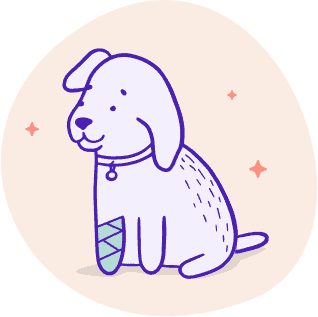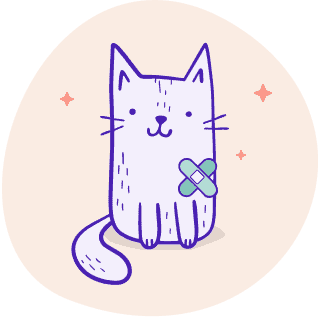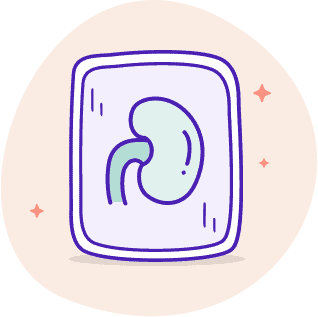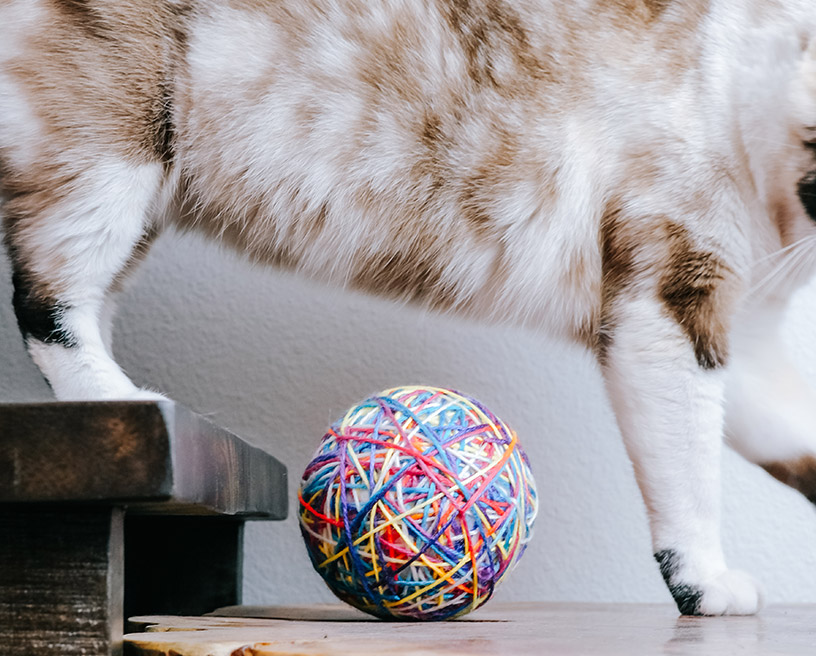ACCIDENT ONLY PLAN
What’s covered?
The Accident Only Plan is a unique, fixed-rate insurance plan that reimburses for accidental injuries. No breed or age limits, just peace of mind.

Injuries
Broken bones, sprains, eye injuries, traumatic dental fractures

Wounds
Bite wounds, lacerations, snake bites, bee stings

Veterinary Treatments*
X-Ray & Ultrasounds, Laboratory Tests, Emergency Care, Hospitalization, CT Scan & MRI, Surgery
*for accidental injuries
What’s not covered?
Illnesses, diseases, and specific conditions
Breed-specific health issues or illnesses, congenital conditions, chronic conditions, dental Illness.
Specific Injuries
Pre-existing injuries, cruciate ligament events, or Injuries due to behavioral conditions or intentional acts
Preventative Care
Routine or wellness care such as checkups, vaccinations, spay/neuter, microchipping or teething cleaning.
The Details
Odie’s Accident-Only plan reimburses you for up to $10,000 each year. You pay a $250 deductible once a year and are reimbursed for 90% of your veterinary bills.
$10,000
Annual Limit
90%
Reimbursement
$250
Annual Deductible
Need more coverage? Check out our Injury & Illness Plan
Additional benefits when you join Odie.
- Unlimited 24/7 Vet Chat
- Dedicated Member Support team
- Add-on Wellness plans
- Short waiting periods
- Quick claims processing

Protect your furry friends
A lifetime of wagging tails and purrfect
peace of mind



